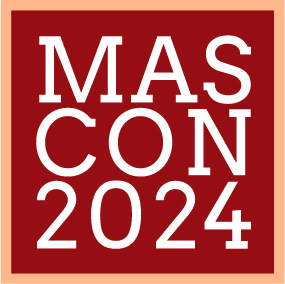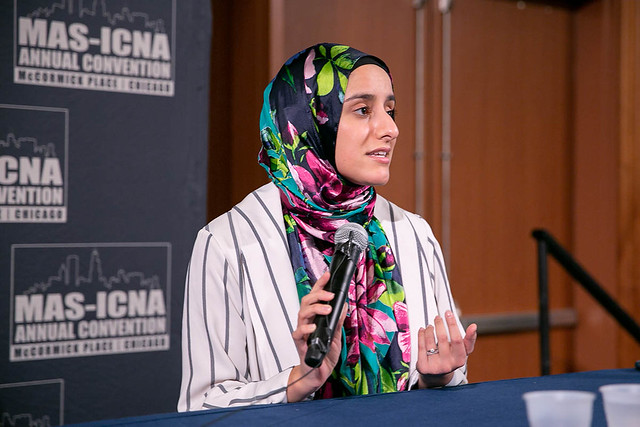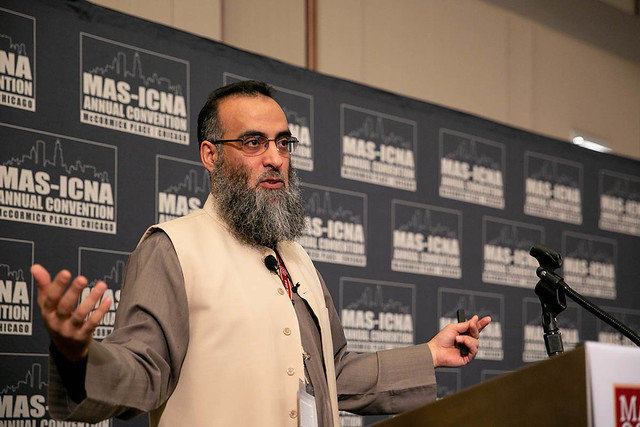Day of Judgement: Reckoning, Redemption, Reward
The past year has been littered with death, destruction, and suffering. Our brothers and sisters in Gaza and all over Palestine continue to suffer the ongoing genocide by the IDF. Muslims continue to suffer in Sudan, Kashmir, Syria, along with the Uighurs. We have witnessed our own children murdered by Islamophobes and an uptick in Islamophobia hate crimes. In the face of this carnage and hate, we have witnessed the perseverance of our youth standing up against injustice at the campus encampments and graduation ceremonies. We have seen Western Muslims taking a stand against injustice whether through boycotts, protests, or speaking up, and this has come at the expense of their own employment, their friendships, their safety and security. And we have seen many people accept Islam in the midst of all this chaos.
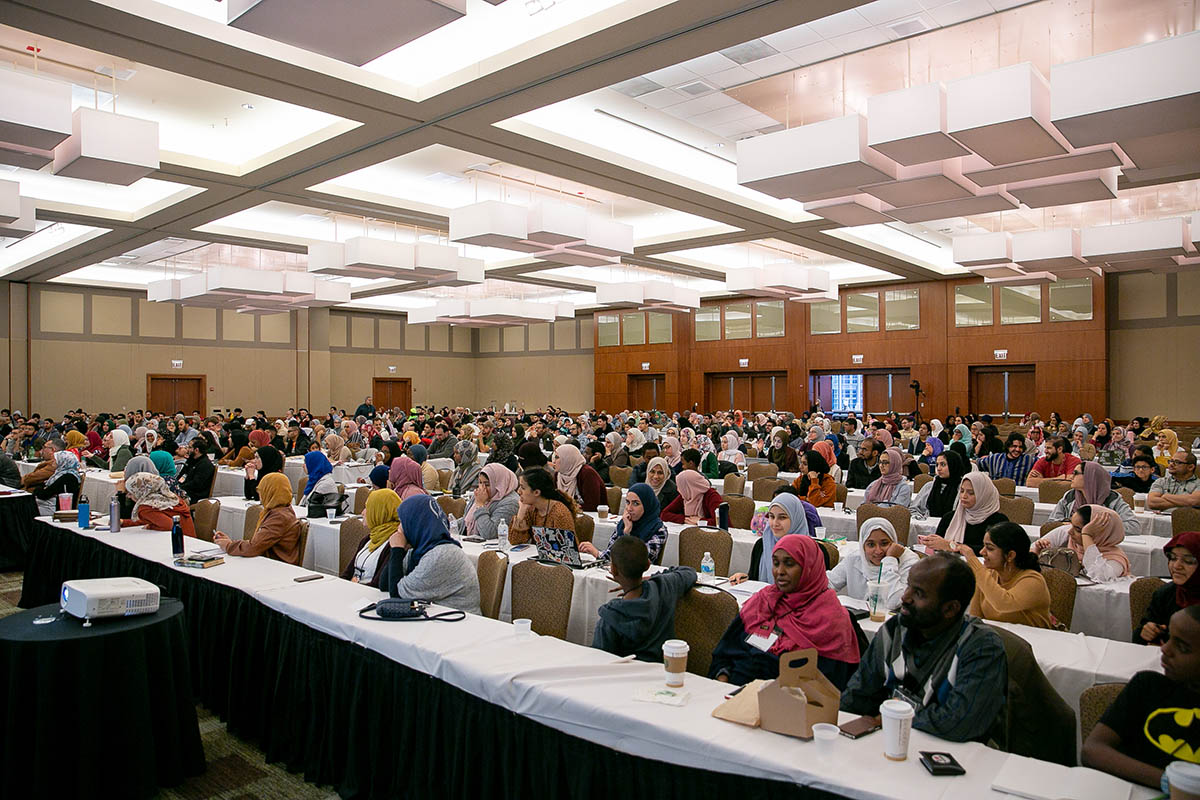
What makes us willing to compromise our safety, our luxuries, our stability? What makes us refuse to capitulate injustice. What makes a non-Muslim decide to accept Islam amid all these turbulences? What makes once non-practicing Muslims decide to return to Allah when all they see on their phones is blood and bigotry?
This is rooted in the belief in a day that all of these matters will be settled. The belief in a day of reckoning for those who thought this is our only life. The belief in a day of redemption for the oppressed. The belief in a day of rewards for those who invested and sacrificed.
This year’s knowledge retreat will be centered on the most important day of our lives – the day of judgment. We chose this theme, because it’s important to stay grounded and remember the purpose of our existence and resistance. Sometimes, even the most practicing Muslim can forget. Amid the burnout, the fatigue, and wavering between optimism and despair, there is a silver lining:
Say (oh Muhammad), “if your parents, or your children, or your siblings, or your spouses, or your countrymen, or your wealth you’ve accumulated, or your business you fear losing, or homes you cherish – (if all these) are more beloved to you than Allah, his messenger, and struggling in his cause, then wait until Allah brings about his will. Allah does not guide the rebellious people.” Allah’s will certainly shall manifest on the day of judgment.
Therefore, we will take a deep dive into this pillar of our faith and why belief in it is not only mandatory, but beneficial. We will explore the chronological events of the day of judgment. We will learn what we can do to prepare ourselves for this day. We will also address some theological and controversial topics, such as reconciling Allah’s infinite mercy with hell and why Allah talks abundantly about pleasures in heaven. And we will talk about the affairs of the oppressors and the oppressed on the day of judgment.
At the end of this retreat, the hope is that attendees will have a greater sense of urgency and optimism toward the day of judgment – urgency in rectifying their actions before that day and optimism in what awaits them on that day.
Register NOW
SPEAKERS
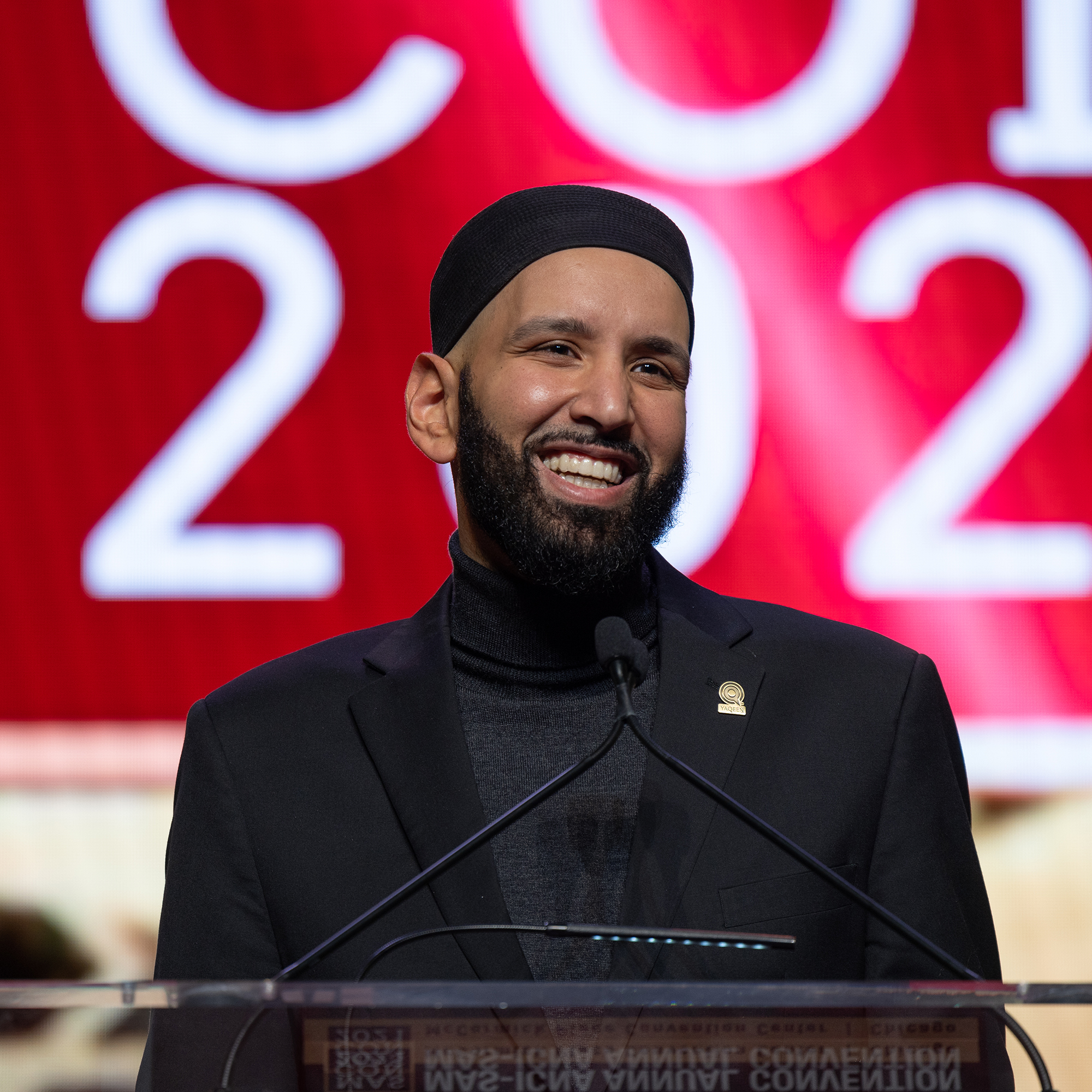
OMAR SULEIMAN
Imam Omar Suleiman is the President of the Yaqeen Institute for Islamic Research and a professor of Islamic Studies at Southern Methodist University. He’s also the resident scholar of the Valley Ranch Islamic Center, and Co-Chair of Faith Forward Dallas at Thanks-Giving Square, a multi-faith alliance for peace and justice.
Originally from New Orleans, LA, he began his journey of traditional Islamic learning in the year 2000 and has spent years studying in the United Arab Emirates, Jordan, Malaysia, etc. Upon becoming certified in various traditional sciences, he completed a Bachelor’s degree in Islamic law, a Bachelor’s degree in Accounting, a Master’s degree in Islamic Finance, a Master’s Degree in Political History, and is in the process of completing his PhD from the International Islamic University of Malaysia in Islamic Thought and Civilization.
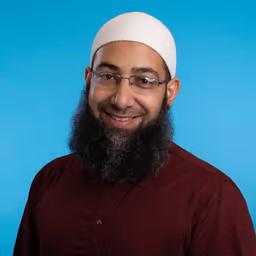
Sh. Mohammad Elshinawy
Sh Mohammad Elshinawy is the Religious Director at Jesus Son of Mary Mosque in Allentown, Pennsylvania. He is a graduate and instructor at Mishkah University. He is a Research Fellow at Yaqeen Institute. He is a graduate of English Literature (Brooklyn College) and an instructor at Legacy International Online High School. "
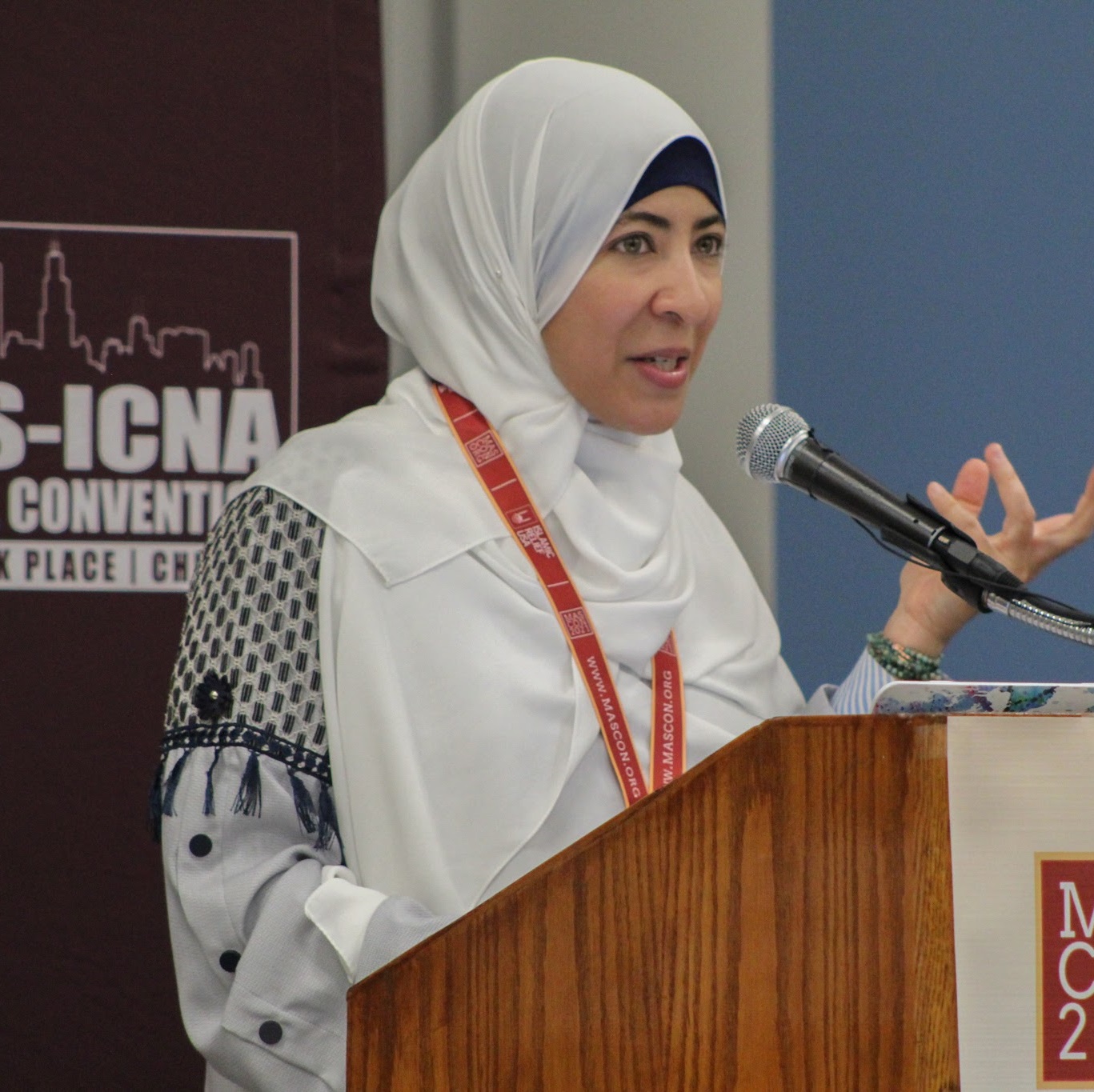
ZAYNAB ANSARI
Zaynab Ansari has served the Muslim Community of Knoxville since 2014 as a scholar-in- residence, public speaker, facilitator of interfaith dialogue, youth mentor, and a full-time instructor at Tayseer Seminary. She has over ten years of experience as a student and teacher of traditional Islam in various settings, having spent her formative years studying in Damascus, Syria with both male and female scholars of Qur'an, Islamic law, theology, and spirituality. Prior to settling in Knoxville, Ustadha Zaynab was based in Atlanta, where she earned degrees in World History and Middle Eastern Studies from Georgia State University, and dedicated her free time to volunteering with the Islamic Speakers Bureau of Atlanta, which honored her with the Georgia 40 Under 40 Muslims award in 2016.
Ustadha Zaynab travels throughout the United States, speaking on issues of concern to the North American Muslim community at various forums, including ALIM, ICNA, and ISNA. She has also contributed to online Islamic portals and print publications including SunniPath, SeekersGuidance, Azizah Magazine, MuslimMatters, and the Muslim 500. In addition to her work at Tayseer Seminary, where she also serves on the board of directors, she is part of the teaching faculty of the Ribaat Program, an online Islamic Studies curriculum led by Anse Tamara Gray, a leading woman scholar of traditional Islam.
Tariq uses his platform to address the concerns of improperly served communities within the Chicagoland area through volunteerism and activism focusing on connectivity and justice.
Tariq is a past appointee to former Illinois Governor Pat Quinn's Muslim Advisory Council, and is a past Convener of the Chicagoland Shura Council (the gathering of masaajid and organizations comprising the community of Imam Warith Deen Mohammed). He serves on various organizational boards that reflect his core values of service, education, and activism.
When he's not engaged in community work, Tariq enjoys spending time with his wife of 17 years, and their three teenage daughters.
In her past role as Director of Movement and Campaign Strategies at PANA, she helped to build a newly founded organization as she built grassroots community power through organizing, advocacy, alliance building, designing and implementing a civic engagement infrastructure in refugee communities, developing leaders, addressing hate crimes and using an integrated voter engagement strategy to build a visible refugee electorate. She continues to be engaged in and work on issues that address racial disparities, social injustices, equity and inclusion for marginalized communities. She is a former co-host on Flip the Script: The Future is Female podcast which lifts up women game changers and leaders in San Diego county. She also served as a member of the Strategic Council for statewide tables Mobilizing the Immigrant Vote and Steering Committee member for Power California as well as a representative on California Calls’ African-American Civic Engagement Program.
Ismahan received her Bachelor’s in Human Biology from UCSD and a MA in Education with Concentration in Counseling from SDSU. She currently serves as the National Deputy Director for the Muslim American Society’s Public Affairs and Civic Engagement Department and also serves as the Executive Director at MAS PACE San Diego. Ismahan has received numerous recognitions and awards for her work including Assemblywoman Gonzalez-Fletcher’s 2018 Woman of the Year recognition, Power-Builder Award, recognized by NAACP for her service in the community, Moxie Theatre’s Women with Grit and Determination award, Youth Adult Ally 2019 and more. . As a frequent speaker in local and national platforms, Ismahan is passionate about working for justice and building an inclusive society.
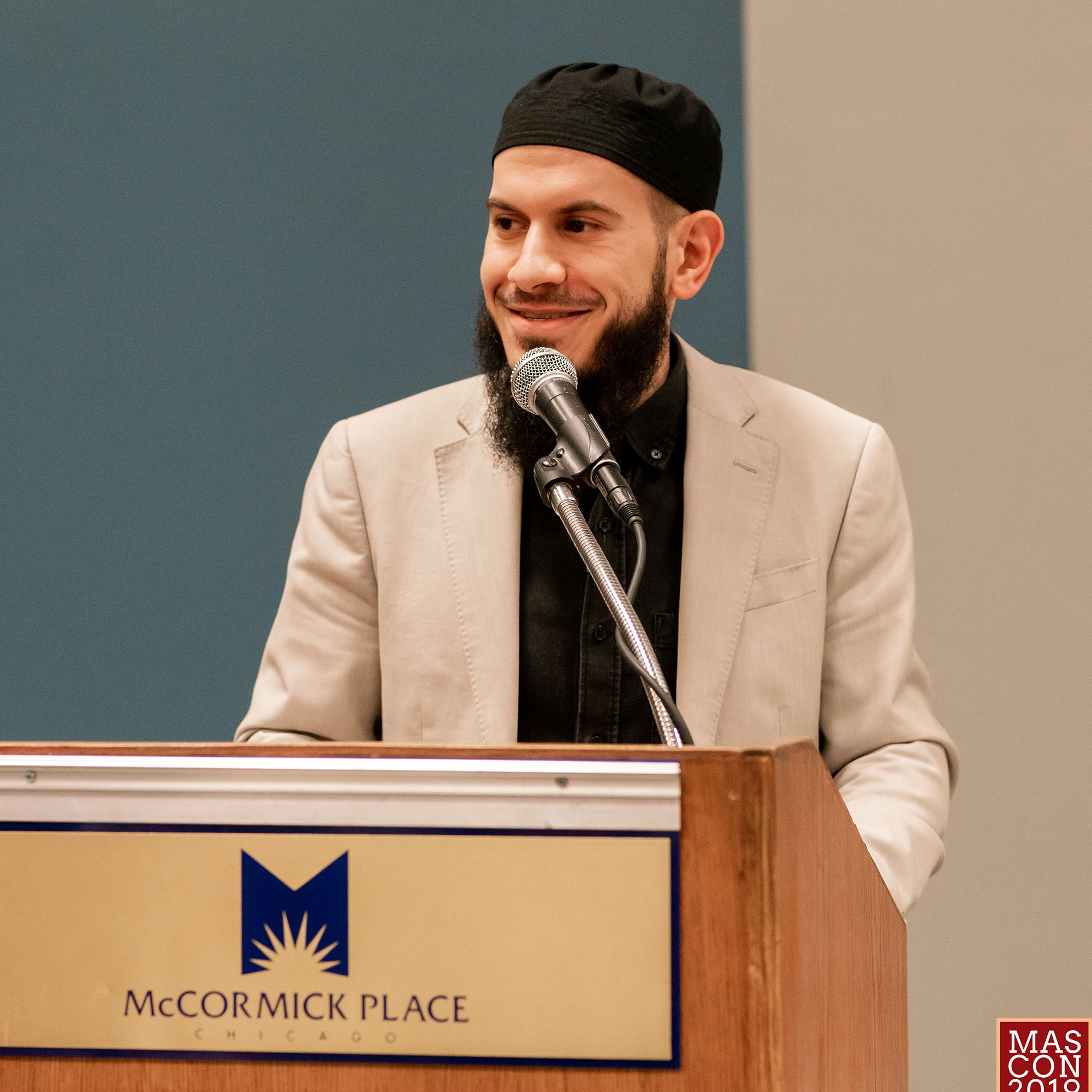
SULEIMAN HANI
Imam Suleiman Hani is the Director of Academic Affairs at AlMaghrib Institute, a research scholar for Yaqeen Institute, a resident scholar at the Islamic Cultural Association, and an adjunct lecturer at the Islamic Center of Detroit. At the age of 14, Suleiman completed a 10-month Qur’an memorization program and began his intensive studies under numerous scholars, earning dozens of traditional religious certifications in the process. He later earned a master’s degree from the University of Jordan’s College of Shari’ah, ranking first in his class, and a master’s degree from Harvard University, where he studied religions, philosophy, political science, and psychology. Over the past decade, he has served as an Imam and community leader in Michigan, lectured in dozens of countries, published a number of books and articles, and was featured on the largest Islamic TV stations worldwide.
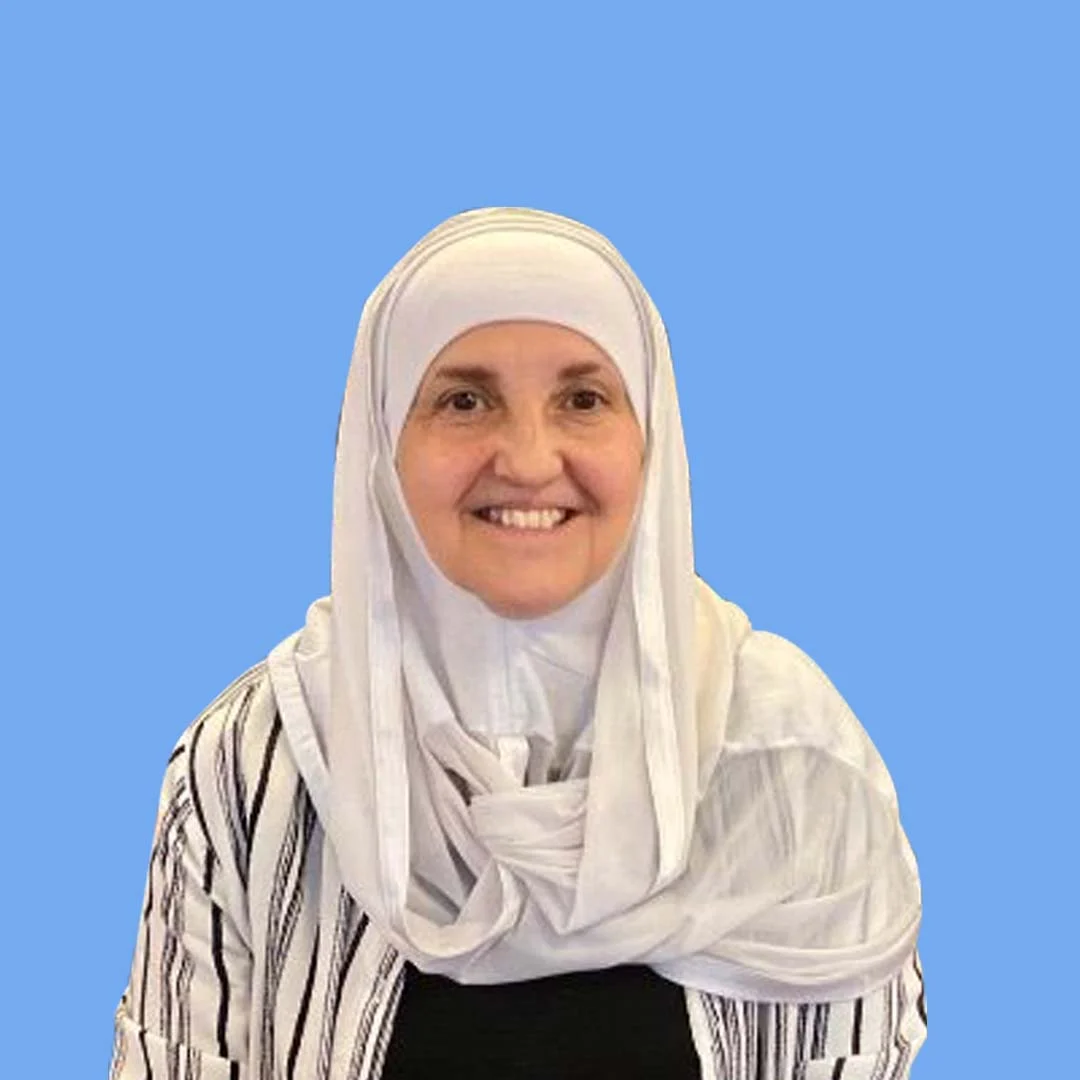
Dr. Haifaa Younis
Dr. Sh. Haifaa Younis is an American Board Certified Obstetrician and Gynecologist with roots from Iraq. She is the founder and Chairman at Jannah Institute, and a resident scholar at Jannah institute and the Islamic Center of Irvine (ICOI). Dr. Younis graduated from the Mecca Institute of Islamic Studies and Al-Huda Qur’an Memorization School (Jeddah, Saudi Arabia) where she completed the memorization of the Qur’an. Currently, she lives and works in the United States, and teaches various Islamic studies courses with a focus on purification of the heart (Tazkiyah).
ESSENTIAL AXIOMS:
We will enter the KR with the following important presumption which help how to address the issue:
-
Hadith is the main source of Islamic knowledge & Shariah second to none but to the Quran.
-
No Muslim should ever reject something they know the Prophet (S) authentically said, did or approved. If the Prophet (S) was in front of them, they’d accept it.
KR COURSE MAIN COMPONENTS:
-
The sciences of hadith are technical and can become very dry, and the goal of the KR is for the audience to have a general understanding of sciences of hadith, without getting bogged down by the minutia.
-
While discussing the sciences of hadith real-life scenarios will be covered as related case studies for lessons learnt.
-
We will discuss in two to three lectures the following basic hadith topics "Definition of hadith & its sciences, brief history of hadith compilation, classification of hadith".
-
Next lectures will focus on 3 sources of doubt related to hadith and how to dispel them:
-
SOCIETAL DOUBT
It’s coming from what they heard their family and friends say; for example, people might say things like “hadith are nonsense, shuyookh are trying to control things, all you need is the Quran, etc.” This rhetoric is often a tactic to escape certain fiqh issues that would problematize their own lifestyles. And they’ll attempt to bolster their argument by saying, “just follow the Quran,” when in reality they say this because they believe the Quran is more lenient than hadith, and they can ultimately do things they want to do either because Quran did not mention it or the Prophet (S) forbade it but they can question the authenticity of relating it to the Prophet.
-
INTELLECTUAL DOUBT
One of these doubts is to believe it’s simply not possible to accurately transmit hadith as it is transmitted by chain (e.g. I heard this person, who heard from this person, that the Prophet (S) said…). The teacher’s goal is to intellectually and factually reassure Muslims that the science of hadith is indeed a robust, credible science.
-
COGNITIVE DOUBT
They don’t doubt the sciences of hadith. Rather, there are some hadith that are controversial and this leads to doubting the hadith tradition as a whole. For example, they may assess a hadith that is difficult to reconcile. They will have trouble believing the Prophet (S), the most perfect human being, would ever say such a thing on various matters or do such a thing. The doubt in one hadith then causes doubt in several other hadith. And it leads to questioning the need for hadith. Therefore, it is important to have a session or two titled, “Did the Prophet (S) really say that?” It’s important for the speakers of the IKR to address the controversial hadith by quoting what classical scholars said centuries ago, because you will find differing opinions amongst scholars regarding such hadith. This will lead the audience members to realize that such hadith are in fact not controversial. And another lecture will address how to approach such controversial hadith. Ultimately, the goal is when Muslim says or feels, “I’m uncomfortable with this hadith,” the speaker can help the Muslim go from feelings of doubt to the affirmation of “we hear and we obey.”
SCHEDULE
Click on the Image to Enlarge
9:00 AM - 9:40 AM
Fundamentals of Hadith Sciences. (Part-1)
(Definition of Hadith)
09:45 AM - 10:30 AM
Fundamentals of Hadith Sciences. (Part-2)
Hadith & Sunnah
10:30 AM - 10:45 AM
Break
10:45 AM - 1:30 AM
Development of Hadith
Overview of Documentation, Recording and Transmission (Part-1)
Prophetic Era
11:30 AM - 12:15 AM
Development of Hadith
Overview of Documentation, Recording and
Transmission. (Part-2)
Post-Prophetic Era
12:15 PM - 02:00 PM
Lunch + Dhuhr
2:00 PM – 2:45 PM
Overview of Hadith Collections
2:45 PM -3:30 PM
Overview of Hadith Collections
3:30 PM – 4:00 PM
Asr
4:00 PM – 4:45 PM
Hadith Classification
(Part-1)
4:45 PM – 5:30 PM
Maghrib
5:30 PM – 6:30 PM
Hadith Classification
(Part-2)
6:30 PM – 7:45 PM
Open Q&A
9:00 AM - 9:40 AM
In the Company of Imam Al-Bukhari
The Blessed Journey
09:45 AM - 10:30 AM
The Role of Human Intellect in Hadith Interpretation
10:30 AM - 10:45 AM
Break
10:45 AM - 1:30 AM
When Hadith and Science (seem to) Clash
11:30 AM - 12:15 AM
Emotional Discomfort
Apostasy, Capital Punishment, & Human Rights
12:15 PM - 02:00 PM
Lunch + Dhuhr
2:00 PM – 2:45 PM
Verifying & Understanding Hyperbolic and Exaggerative Hadith
2:45 PM -3:30 PM
Hadith Related to Female Roles, Rights, & Rewards
3:30 PM – 4:00 PM
Asr
4:00 PM – 4:45 PM
Coexistence with and Treatment of Non-Muslims
4:45 PM – 5:30 PM
Maghrib
5:30 PM – 6:30 PM
Loving the Hadith & Sunnah as a Means to Loving the Prophet
6:30 PM – 7:45 PM
Open Q&A
